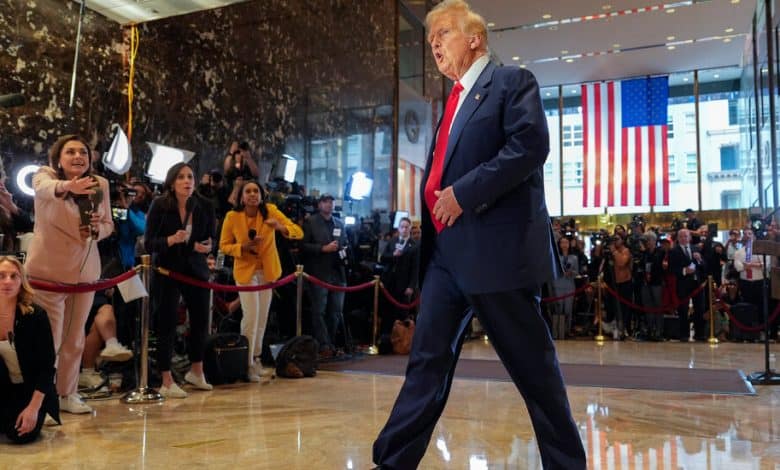What Donald Trump Didn’t Say After His Trial

The way to evaluate a political speech — I mean as a literary critic, not as a pundit or a partisan — is to examine how the rhetoric rises to the occasion. Does the moment demand gravity or transcendence? Humility or defiance? Do the speaker’s words answer the call of history?
In the case of Donald J. Trump’s 33-minute address in the lobby of Trump Tower on Friday, the occasion was both bizarre and momentous. A former president on the brink of becoming, for the third time in a row, the nominee of his party, stood convicted of 34 felonies. That nothing remotely similar has ever happened before is sufficient to guarantee the speech a place in the annals of American political discourse.
As text and performance, though, the thing was kind of a slog. Mr. Trump has never been an orderly orator or a methodical builder of arguments; he riffs and extemporizes, free-associates and repeats himself, straying from whatever script may be at hand. He did some of that on Friday, but his manner was subdued. The matter was also curiously flat: a rehash of the trial, with a few gestures toward the larger political stakes.
The persona Mr. Trump presented on Friday was that of an aggrieved New York businessman — a Trump that seemed like a throwback to an earlier, pre-MAGA era. He didn’t sound like a candidate in campaign mode. The showboating populism that he brings to his rallies — the mix of piety and profanity that gets the crowds going — was hardly in evidence.
It’s true that he began and ended with familiar tropes and themes, painting a grim picture of a declining, crime-ridden American overrun by foreigners (some speaking languages “that we haven’t even heard of”). He framed his legal troubles as an assault on the Constitution and used religious imagery to depict what had happened in the courtroom. Some witnesses were “literally crucified” by the judge, Juan Merchan, “who looks like an angel, but he’s really a devil.”
As a longtime journalist (and lifelong pedant), I’m compelled to point out that nobody was literally crucified. And as a student of Renaissance love poetry, I’m tempted to linger over Mr. Trump’s oddly tender description of the “highly conflicted” judge: “He looks so nice and soft.”A citizen looking for campaign issues might find some boilerplate in a peroration that conjured images of Venezuela and Congo emptying their prisons and asylums onto America’s streets, of Little League ball fields swamped by migrant encampments, of “record levels of terrorists” flooding the country.